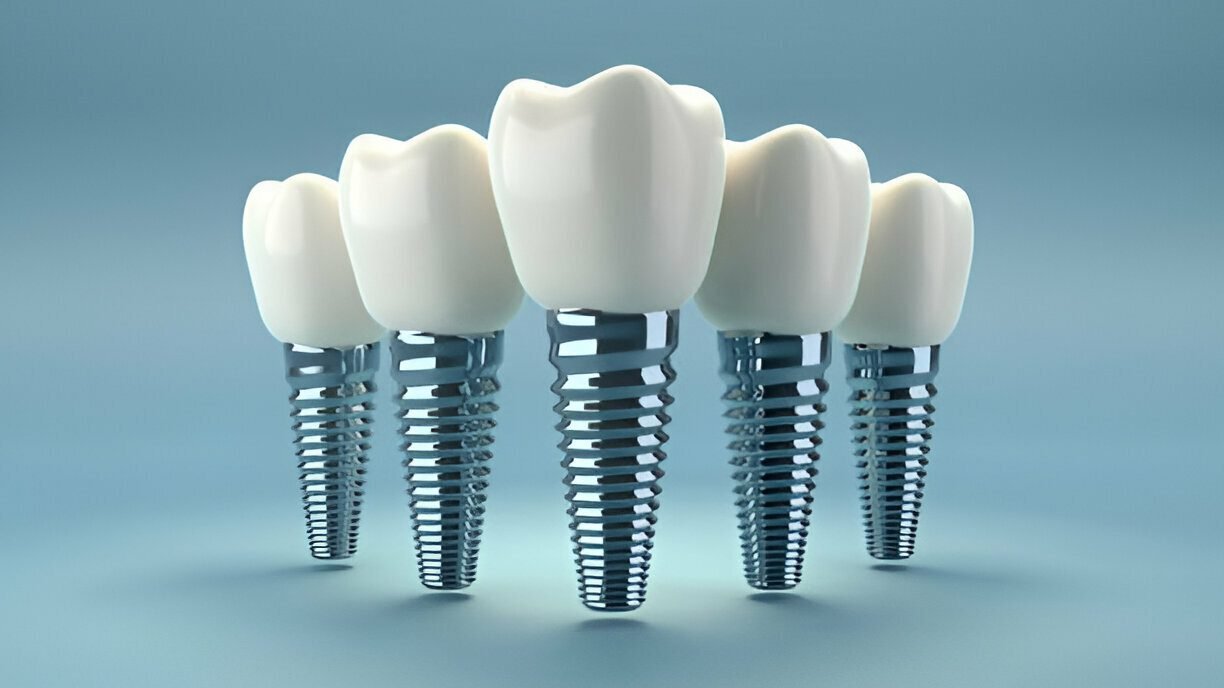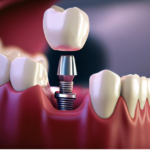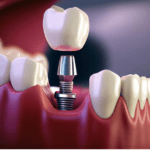Dental implants have revolutionised the way we approach missing teeth. They offer a long-term solution that mimics natural teeth in function and appearance. However, a common question that arises is, “What is the best age for dental implants?” This article aims to answer this question well. It covers key factors. These include jaw development, age, and patient needs.
Understanding Dental Implants
Before diving into the age considerations, it’s crucial to understand what Dental implants are. A Dental implant consists of a titanium post that acts as a tooth root, inserted into the jawbone. A crown is then placed on top to restore the tooth’s function and aesthetics. Unlike dentures, implants are permanent and do not require removal for cleaning.
Jaw Development and Age
One of the primary factors in determining the best age for dental implants is jaw development. For implants to be successful, the jawbone needs to be fully developed. This typically happens in the late teenage years. Generally, girls’ jawbones finish developing around age 16, while boys’ jawbones finish around age 18.
Why Children and Teenagers Are Not Ideal Candidates
Children and teenagers are not ideal candidates for dental implants. Their jaws are still growing, which can lead to complications. An implant placed in an underdeveloped jaw can become misaligned as the bone continues to grow. This misalignment can cause both functional and aesthetic issues. So, dentists usually advise waiting. They say to wait until the jaw has fully developed before considering implants.
Implants in Early Adulthood
Many people consider getting dental implants as soon as they turn 18. While this age is often cited as ideal, it’s not always the best choice for everyone. Even after the jaw has finished growing, the body continues to change. Teeth can drift, and bone can remodel over time. For some people, especially those with long, narrow faces, their jaws can change a lot into their early twenties. This can cause implants to appear submerged or misaligned.
The Ideal Age Range
So, when is the best age for dental implants? Studies suggest that waiting until the mid-twenties to early thirties can give better long-term results. After the age of 30, the rate of bone and tooth movement slows significantly. This stability makes it an excellent time for implants, as the risk of future misalignment is reduced.
Considerations for Older Adults
There is no upper age limit for dental implants. Many older adults, including those in their 80s and 90s, are excellent candidates. The main factor is overall health rather than age. Older adults often seek implants to replace teeth lost due to decay or disease. Implants are great for older people. They improve chewing and speech. They also prevent sagging faces.
Individualised Treatment Plans
It’s essential to recognise that the best age for dental implants can vary based on individual circumstances. Some people may have conditions that affect bone growth. They may also have health issues that impact healing. A dental professional can consult with you. They can figure out the right timing and approach for you. Dentists can take X-rays and perform assessments to ensure that the jawbone is ready for implants.
Alternative Options for Younger Patients
For younger patients who cannot receive implants yet, there are alternative aesthetic solutions. Temporary options such as bridges or partial dentures can fill the gap until the jaw has fully matured. These options help maintain the position of remaining teeth. They also provide an aesthetic appearance while you wait for the right time to get implants.
Benefits of Dental Implants
Regardless of age, dental implants offer numerous benefits:
- Stability: Implants provide a stable foundation for replacement teeth.
- Natural Appearance: They look and feel like natural teeth.
- Durability: With proper care, implants can last a lifetime.
- Implants do not hurt nearby teeth. They also help keep the jawbone strong.
- Confidence Boost: They restore confidence by improving the smile and speech.
Conclusion
In conclusion, the best age for dental implants largely depends on individual development and health. For some, the late teens to early twenties might be suitable. But, waiting until the mid-twenties or early thirties can provide better long-term results. For older adults, age is not a barrier, provided they are in good health. The key is to consult with a dental professional to determine the optimal timing based on personal health and jaw development.
Trust the Leading Implantologist Dental Group in Europe for Your Implant Needs
If you are considering dental implants in the UK, choosing a reputable and experienced provider is essential for achieving the best outcomes. The Leading Implantologist Dental Group in Europe offers expert care, advanced techniques, and personalised treatment plans to ensure successful implant procedures.
Contact Saint Visage Dental Group Today
For the best dental implant care, trust Saint Visage Dental Group. Our experienced team provides top-notch service and personalised solutions to meet your unique needs. Schedule your consultation today and take the first step towards a healthier, more confident smile.
Frequently Asked Question
Can teenagers get dental implants?
Teenagers are not ideal for dental implants. Their jaws are still growing. Implants placed in an underdeveloped jaw can become misaligned as growth continues.
Is there an upper age limit for dental implants?
There is no upper age limit for dental implants. Older adults, even those in their 80s and 90s, can be excellent candidates, provided they are in good overall health.
What are the benefits of dental implants?
Dental implants offer stability and a natural look. They also last a long time and improve oral health. They boost confidence by enhancing the smile and speech.
Are there alternatives for young patients who need implants?
Yes, kids can use temporary options. They can use bridges or partial dentures until their jaws fully mature. Then, they are ready for implants.
How can I know if I’m ready for dental implants?
A dental professional can help after a consultation. It includes X-rays and assessments. They can tell if your jawbone is done growing and if you are ready for implants.




